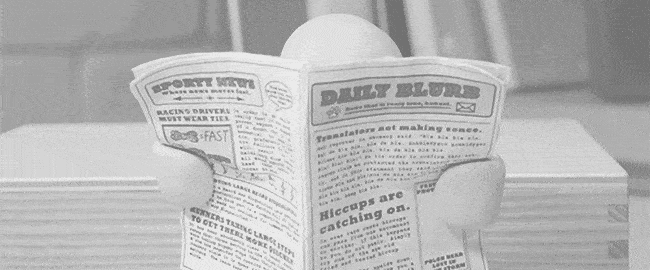
There was a big, silly media fight over the weekend, one of many that seem to surface during times when there’s obviously not very much going on.
But this silly media fight is actually more important than it seems because it reflects the way people have careers. And how the old-school approach to getting those careers no longer really works.
It all started because of a comment made by tech culture scribe Taylor Lorenz in an Insider story about The New York Times’ approach to outside projects. As I have made clear in the past, I once had a job prospect (not with the Times, but in NYC) go belly up in part because the publication wanted me to get rid of my site and I showed a slight amount of hesitation around that. So kind of a pet issue for me.
But Lorenz made this comment in the piece:
When you think about the future of media, it’s much more distributed and about personalities. Younger people recognize the power of having their own brand and audience, and the longer you stay at a job that restricts you from outside opportunities, the less relevant your brand becomes.
And all of a sudden, it became A. Thing.
https://twitter.com/TaylorLorenz/status/1500246144554717184
Lorenz, who just left the Times for the Washington Post and probably has more followers on TikTok than everyone reading this combined, soon saw her comments being dissected by people at other newspapers—including former coworkers at the job she just left and soon-to-be-coworkers at the job she’s just about to start, in the same Twitter thread, all taking issue with the idea that journalists need to be brands. (Politico, which apparently wants to keep this fight going, sided with the legacy journalists, despite most of the comments favoring Lorenz.)
Now, I get it, these people are associated with newspapers that operate out of tall buildings, but the air isn’t that thin up there (especially in DC, where the buildings aren’t even that tall!), and seemingly everyone else who works in journalism that doesn’t have one of these big-name jobs probably got what she was saying right away. There is a degree of hustle and personality-driven journalism that has dominated the way online media has worked for years.
Lorenz pointing out that big news are outlets ignoring that, and then getting criticized for that, doesn’t obfuscate the fact that this is the game now.

(Victor/Unsplash)
When I got into newspapers, the path for becoming a big-city journalist looked like this:
- Go to journalism school, get a degree
- Work at a small paper
- Work at a slightly larger paper
- Work at a mid-size paper, maybe win an award
- Work at a large paper
(I personally got to step 4 with my career in newspaper design, though having worked at the Washington Post Express, you could kinda call it step 5.)
Now, for many, the path is much closer to this:
- Go to college, or not, the specific degree doesn’t matter
- Do something that gets you attention, like tweeting or running a newsletter or livestreaming
- Get a job, or freelance, or self-publish, while continuing to do stuff that gets you attention
- Work at a large media outlet, or start your own
Journalism is a game of choose-your-own-adventure in 2022 (or better, Calvinball, as the rules keep changing), and honestly, we need more people like Taylor specifically calling out the fact that there isn’t just one set path anymore and that journalists aren’t just tied down to having to be one thing anymore. The point that Taylor is trying to make is that personality-driven journalism is a much bigger deal than it once was—after all, we follow individual journalists, not just brands, on social media—and trying to lock it down out of some fear of those journalists sullying the brand somehow is counterproductive.
The truth of the matter is, there are no rules anymore, and in the war for talent, media outlets that actively fight against the new path in favor to the old one are going to find a lot less talent along the way.
So yes, journalists are their own brands, whether they want to be or not. Let’s stop pretending that the masthead matters more than the byline. That ship sailed long ago. Even at the Times and the Post.
Time limit given ⏲: 30 minutes
Time left on clock ⏲: 1 minute, 46 seconds



